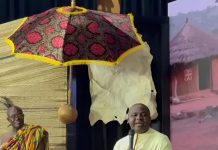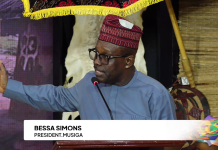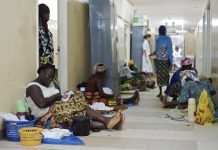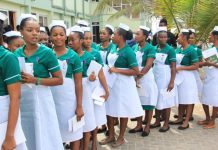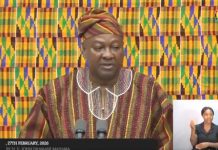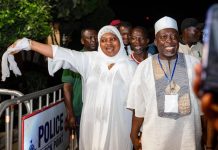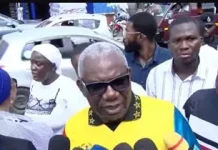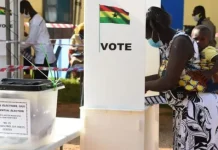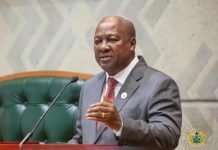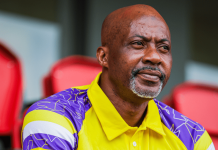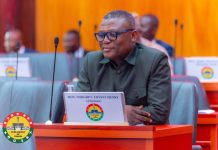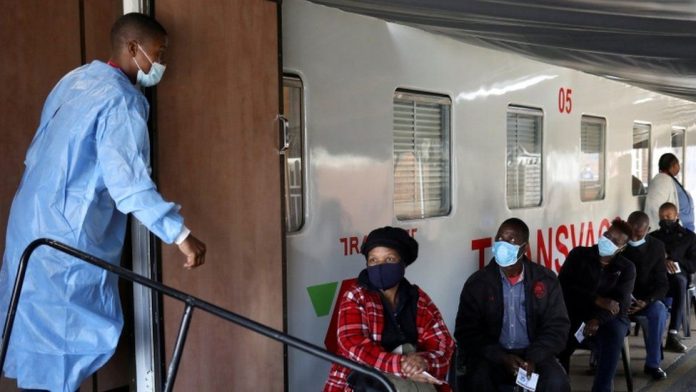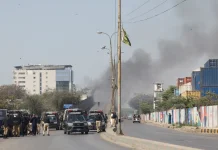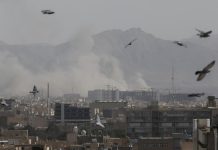South Africa has complained it is being punished – instead of applauded – for discovering Omicron, a concerning new variant of Covid-19.
The foreign ministry made the statement as countries around the world restricted travel from southern Africa as details of the spread emerged.
Early evidence suggests Omicron has a higher re-infection risk.
The World Health Organization (WHO) said on Friday that the new variant was “of concern”.
Several cases have now been identified in Europe – two in the UK, two in Germany, one in Belgium and another one in Italy, while a suspected case was found in the Czech Republic.
Israel, where the new variant has been confirmed, has decided to ban all foreigners from entering the country from midnight Sunday.
The measure will last for 14 days, according to the Times of Israel.
Omicron cases have also been detected in Botswana, Hong Kong and Israel.
Hundreds of passengers arriving in the Netherlands from South Africa are being tested for the new variant.
Some 61 people on two KLM flights were positive for Covid-19 and have been quarantined at a hotel near Amsterdam’s Schiphol airport while they have further tests, Dutch officials said.
The Netherlands is currently struggling with a record-breaking surge in cases. An extended partial lockdown comes into force there on Sunday evening.
The new Omicron variant was first reported to the WHO from South Africa on 24 November.
‘Excellent science’
A statement by the South African foreign ministry on Saturday strongly criticised the travel bans.
“Excellent science should be applauded and not punished,” it said.
The bans were “akin to punishing South Africa for its advanced genomic sequencing and the ability to detect new variants quicker”.
The statement added that the reaction had been completely different when new variants were discovered elsewhere in the world.
An African Union official told the BBC developed countries were to blame for the emergence of the variant.
“What is going on right now is inevitable, it’s a result of the world’s failure to vaccinate in an equitable, urgent and speedy manner. It is as a result of hoarding [of vaccines] by high-income countries of the world, and quite frankly it is unacceptable,” said AU vaccine delivery alliance co-chair Ayoade Alakija.
“These travel bans are based in politics, and not in science. It is wrong… Why are we locking away Africa when this virus is already on three continents?”
On Friday and Saturday, a number of countries announced new measures:
- Travellers from South Africa, Namibia, Zimbabwe, Botswana, Angola, Mozambique, Malawi, Zambia, Lesotho and Eswatini will not be able to enter the UK unless they are UK or Irish nationals, or UK residents.
- US officials said foreigners would be blocked from travelling from South Africa, Botswana, Zimbabwe, Namibia, Lesotho, Eswatini, Mozambique and Malawi, mirroring earlier moves taken by the EU. They will come into effect on Monday.
- Australia announced on Saturday that flights from South Africa, Namibia, Zimbabwe, Botswana, Lesotho, Eswatini, the Seychelles, Malawi, and Mozambique would be suspended for 14 days. Non-Australians who have been in those countries in the past two weeks are now banned from entering Australia
- Japan has announced that from Saturday, travellers from much of southern Africa will need to quarantine for 10 days and take a total of four tests during that time
- India has ordered more rigorous screening and testing for travellers arriving from South Africa, Botswana and Hong Kong
- Canada is barring all foreign nationals who have travelled through South Africa, Namibia, Zimbabwe, Botswana, Lesotho, Eswatini or Mozambique in the last 14 days
The WHO said the number of cases of this variant, initially named B.1.1.529, appeared to be increasing in almost all of South Africa’s provinces.
“This variant has a large number of mutations, some of which are concerning,” the UN public health body said in a statement on Friday.
It said “the first known confirmed B.1.1.529 infection was from a specimen collected on 9 November”.
BBC




